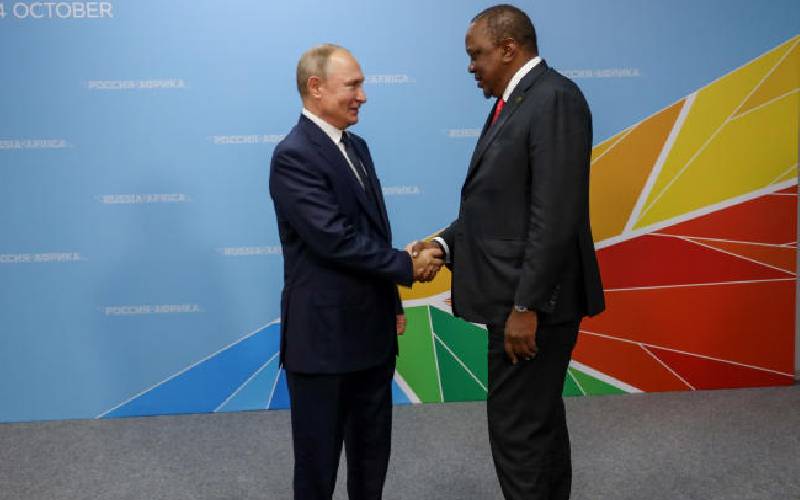×
The Standard e-Paper
Smart Minds Choose Us

President Uhuru Kenyatta and the President of Russia Vladimir Putin during the Russia-Africa Summit in the resort city of Sochi in Russia.
The UN Convention on biological diversity was adopted nearly 30 years ago and is a key universal instrument of international law that unites countries and multilateral organisations in a bid to conserve nature and promote sustainable use of our planet’s resources.







